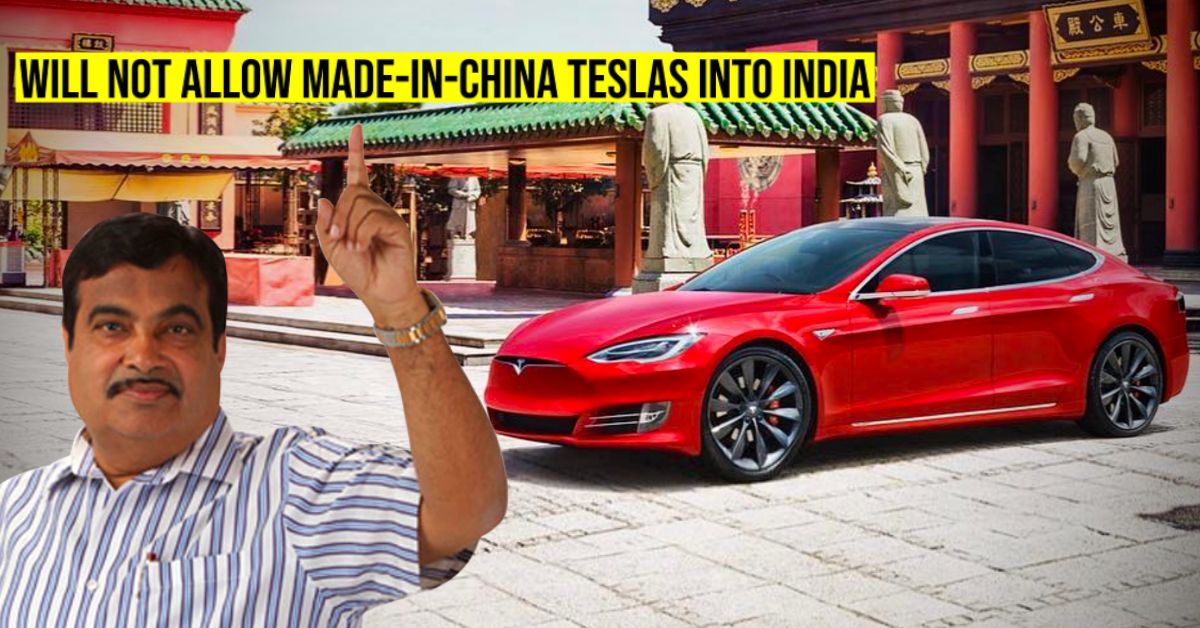Nitin Gadkari to Elon Musk: If you make in China and sell in India….

[ad_1]
The Indian government is extending an invitation to Tesla, the electric vehicle pioneer, but with a clear stipulation – they are welcome to India, but they must manufacture locally to avail concessions. This statement comes from Nitin Gadkari, the Minister for Road Transport and Highways in India, who has shared his perspective in a recent interview.

India, with its vast market and diverse vendor base, is certainly an appealing destination for Tesla. Gadkari acknowledged this by stating, “We welcome Tesla to India. India is a big market with all types of vendors present here.” However, there’s a catch – to benefit from concessions, Tesla must set up manufacturing facilities in India.
Gadkari emphasized that if Tesla manufactures in China and aims to sell its vehicles in India, they won’t receive any concessions. The key condition set by the Indian government is clear – local production is a prerequisite for incentives.
Also read: 10 DC Design cars & how they look in the REAL world: Maruti Swift to Mahindra XUV500

This policy stance follows recent reports that the Indian government is developing a framework designed to attract technologically advanced vehicle manufacturers like Tesla. The framework aims to promote domestic manufacturing with an emphasis on local sourcing and a reduction in import duties for fully assembled units during the initial years.
The proposed plan includes a significant reduction in import duties on electric vehicles, which could drop to as low as 15%, compared to the current peak of 100%. However, these reduced tariffs come with conditions, such as manufacturers commencing operations in India, increasing local component sourcing, and providing bank guarantees to cover any defaults on their commitments.
The government’s objective is to encourage companies to build a local supplier ecosystem, aiming for around 20% local parts sourcing within the first two years, eventually increasing to 40% by the fourth year. Bank guarantees would match the value of the import duty reductions, serving as a safeguard if companies fail to meet their local manufacturing and investment commitments.
This represents a potential shift in the government’s approach to import duty rates, indicating a desire to attract companies with advanced technologies to invest and produce in India. If implemented, this policy would provide significant advantages to companies like Tesla, BMW, and Audi, allowing them to introduce their electric vehicles to the Indian market while assessing demand for their imported models.
The primary goal of this policy is to boost electric vehicle production significantly in India in the medium term. The Indian government is actively working to lure Tesla and secure its commitment to establishing a factory within the country. There have been positive discussions between Tesla officials and the Indian government, and a meeting between Prime Minister Narendra Modi and Tesla CEO Elon Musk has further advanced this initiative.
Tesla has expressed its intention to establish a factory in India with an annual production capacity of 500,000 units, serving as an export hub. Their model range is expected to include vehicles with a starting price of over Rs 20 lakh.
While government officials assert that this policy framework will benefit all players, both domestic and global, it may pose a challenge to the green ambitions of Indian companies like Tata Motors and Mahindra & Mahindra, who have invested significantly in local electric vehicle manufacturing. Reduced import duties could potentially attract luxury car buyers away from locally produced electric vehicles if global models become available at competitive prices in India.
Also read: Upcoming 2022 Maruti Suzuki Vitara Brezza rendered
[ad_2]